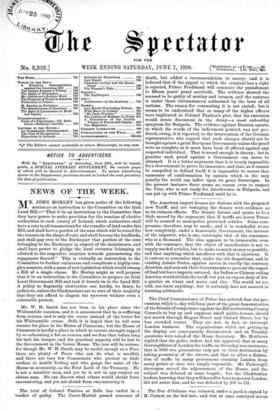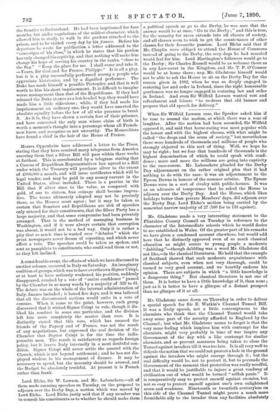The Duo d'Orleans was released, under a pardon signed by
M. Carnot, on the 3rd inst., and was at once conveyed across The frontier to Switzerland. He had been imprisoned for four months, but under regulations of the mildest character, which allowed him to study, to walk in the gardens attached to the prison, and to be visited every day by his fianege. Before his departure he wrote for publication a letter addressed to the "conscripts of his class," in which he states that his pardon has only changed his captivity, and that nothing will make him change his hope of serving his country in the ranks, "close to the flag." "Keep the place for me. I shall come and take it. —Yours, for God and for France, Philippe." it is all a play, but it is a play successfully performed among a people who appreciate histrionics, and by a dignified performer. The Duke has made himself a possible Pretender, and that is well worth to him his short imprisonment. It is difficult to imagine worse management than that of the Republicans. If they had released the Duke at once as a hot-headed boy, they would have made him a little ridiculous ; while, if they had made his imprisonment an ordinary one, they would have asserted the absolute equality before the law of all who presume to break ft. As it is, they have shown a certain fear of their prisoner, and have converted the only man whose claim of birth is worth a moment's thought into a personage whom all French- men know, and recognise as not unworthy. The Monarchists have found a chief in the heir of the House of France.





































